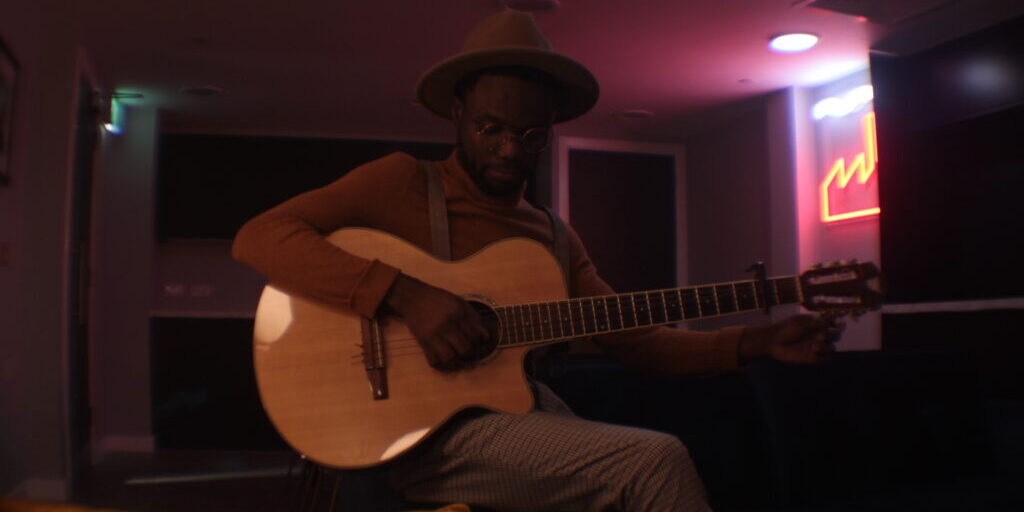
A few weeks ago, one of my favourite artists released an anniversary edition of one of my favourite songs. I'm talking about Passenger’s Life’s For The Living. As I listened to it, my mind was flooded with memories from when I first heard it almost ten years ago. I remembered loving the song so much that I wanted to learn how to play it, and although I knew my way around the guitar and piano at the time, I didn’t even come close to being able to replicate the guitar fingerpicking technique in the song. I remembered struggling to learn this technique on the guitar for weeks on end, and eventually giving up, admitting defeat and consoling myself by saying it was probably for the best, that I would enjoy the song more if I just listened to it rather than trying to play along.
A lot has happened in the last ten years. I’ve gone on to learn many songs and write my own. I’ve recorded and released a few of these and I've laid the groundwork for a career as a singer-songwriter and author. I never really went back to relearn Life's For The Living, so imagine my surprise when, a few days ago, having listened to it again on my walk, I got home and immediately picked up the guitar and played a cover of it. I had to pull up the lyrics because I couldn’t remember it all, but somehow, my fingers knew just what to do and just where to go on my guitar’s frets and strings, as if they always knew. I played and sang the song as if it was one of my own, one that I’d written, and it wasn’t until after I’d put down the guitar that I realised how remarkable that was.
Playing along to a song isn't something to brag about. There’s not much to brag about really, millions of people can sing and play musical instruments. What was remarkable was that I found myself doing something rather flawlessly that I’d tried and failed to do years ago, and in the time that passed since, I never went back to relearn how to do it. It took a moment to reconcile this in my mind, but when I did, I realised that perhaps the reason I was able to play the song was that I’d learned it without really learning it. In the ten years since I first heard it, I’ve learnt many guitar techniques, used these techniques to write my own songs and play other songs, and played countless shows and gigs. All these put me in a position where I could hear the song and instinctively know what to do to play along to it on a guitar. Simply put, I was learning to play the song without learning to play the song, and I was making progress all the while in my musical journey without realising it. This got me thinking about how progress happens in general.
I’ve previously written about how we tend to think things are getting worse in the world, when in fact if you consider a host of quality of life metrics such as poverty levels, child mortality, and life expectancy, things are actually getting better. We tend to think things are getting worse because bad news is more available to us thanks to social media and 24-hour cable news. This is known as the availability heuristic, but there's a second culprit, and it's more pertinent to this post: bad things tend to happen quickly while good things tend to happen much more slowly. For instance, when there’s an earthquake or a terrorist attack that takes everyone by surprise, it’s more likely to be on the news and make the rounds on social media, but you’re unlikely to see news headlines that draw your attention to the fact that thousands of people have escaped poverty on a daily basis for the last few decades.
I believe the same cognitive bias applies to how we think about progress and the lack thereof. We’re usually unable to perceive the progress we make from one day to the next. Rather, we’re much more likely to feel like we’re stagnating because of this perceived lack of progress, and it’s not much of a leap from there to feeling like the world is moving on and leaving us behind. It’s bad enough when we feel we’re not making progress, but what’s worse is that we can start to feel like we’re regressing, and this ignites a vicious cycle where this perceived regression robs us of the joy and drive that fuels our progress, thus causing us to self-sabotage.
This is a difficult and unfortunate position to be in, and if our daily struggles are anything to go by, it takes effort to break this vicious cycle. So, this is a reminder, a note to self, that the next time I’m feeling down and frustrated about not making progress quickly enough at whatever creative or professional venture I’m pursuing, I just need to take a breath and remember, believe even, that sometime in the future, maybe 10 years, or 10 months, or 10 days from now, I’ll look back on this moment and appreciate the progress I’ve made. Because while progress is easily appreciated after the fact and clearly discernible in hindsight, in the thick of the moment, progress isn’t always obvious.

P.S: My new book, A Hollade Christmas is out everywhere now. You can get it in all good bookstores and from all major online vendors.